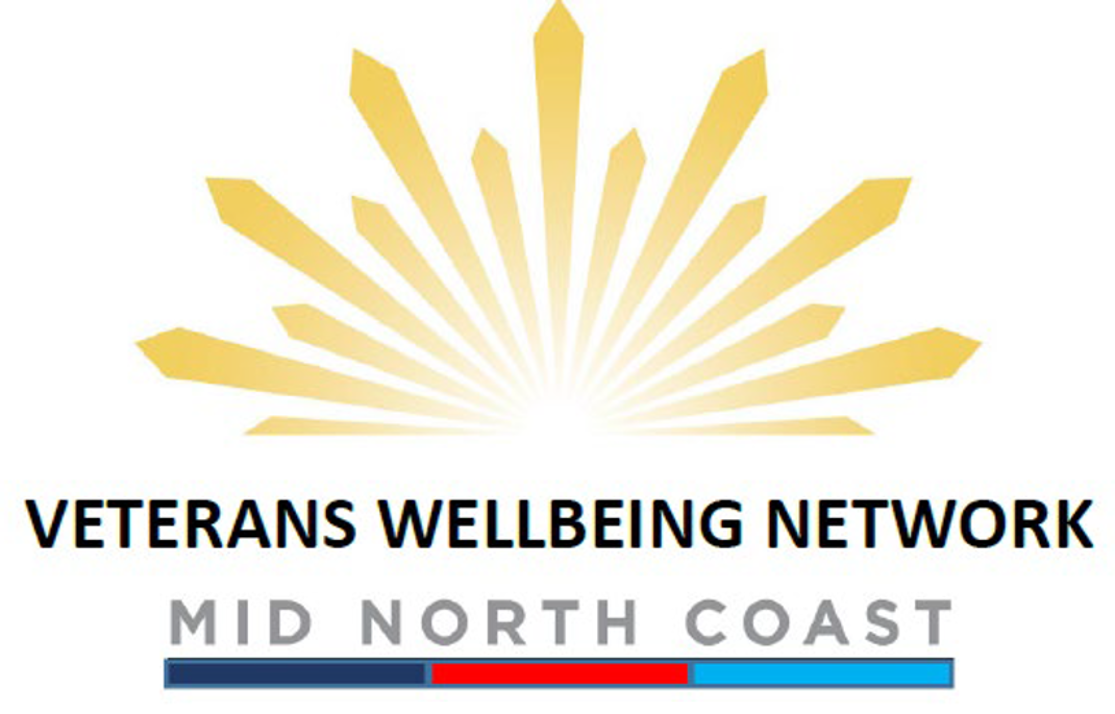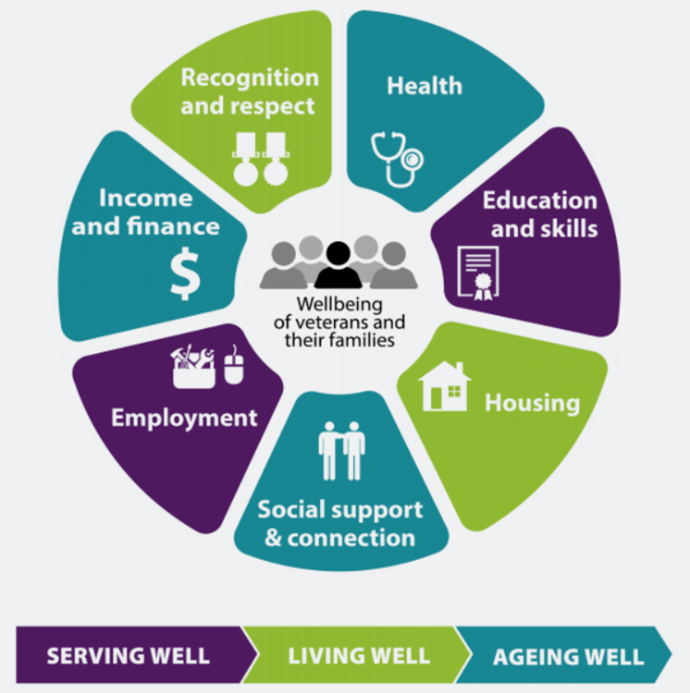Programs
The Programs we offer are focused on achieving Wellbeing for the Veteran and their Families and are derived from the Department of Veterans’ Affairs (DVA) Wellbeing Model and the Australian Institute of Health and Welfare (AIHW) Veteran-Centric Model.
Wellbeing
Modern military training, conflict and disaster relief have completely changed membership of the veteran community. Today’s Wellbeing Advocate and Wellbeing Support Officers have a comprehensive understanding of the needs of veterans, ex-ADF personnel and their families, no matter whether your service was in WWII or you are still serving. Our Wellbeing Advocates link you and your dependents with government, private sector and community-based service-providers from cradle-to-grave.
As well as providing advice the wellbeing team conduct:
- Hospital visits, Home visits, and Aged Care Facility visits as required
- Bereavement Support
- Liaison with local government bodies concerning veterans
- Liaison with the New South Wales Government’s Office of Veterans’ Affairs
- Liaison with the Department of Veterans’ Affairs and their local Veterans’ Affairs Network (VAN) offices
- Liaison with Aged Care Facilities within the area of responsibility
- General assistance when requested, and
- Transitional Management of discharging Australian Defence Force Personnel
If you or someone you know requires or needs someone to talk with, the on-call Wellbeing Advocate can be contacted on 02 5621 8108.
Useful Links for Wellbeing
- OpenArms 1800 142 072 (DVA)
- Defence Member and Family Support 1800 624 608
- Veterans Mates
- Veterans and Veterans Families Counselling Service: 1800 011 046
- Legal Aid NSW: 1300 888 529
- RSL NSW DefenceCare (02) 8088 0388
- Defence Force Welfare Association: (02) 6152 9162
- Phoenix Australia (incorporating the Australian Centre for Post Traumatic Mental Health) (03) 9035 5599
- Australian Veteran’s Children Assistance Trust: (02) 9213 7999
- Beyond Blue: 1300 224 636
- Kids Help Line: 1800 551 800
- Lifeline: 13 11 14
- Mensline: 1300 789 978
- National Association for Grief and Loss (NSW): (02) 6882 9222
- The Black Dog Institute
- Young Diggers
- Lost Medals Australia
- Soldier On 1300 620 380
- Mates4Mates 1300 462 837
Advocacy
Advocacy is the act of making representations on behalf of another to ensure that they receive a fair hearing of their case or an outcome which they seek. In our context this means providing support to veterans who are seeking entitlements, based on their service, from the Department of Veteran Affairs. It also means representing Veterans and their Families at Government forums, committees, workshops and Royal Commissions and giving veterans a voice within Government.
The role of the Advocate is to assist clients to prepare and present their case; through submission and representation, to the Veterans’ Review Board (VRB) or Administrative Appeals Tribunal (AAT).
Advocates take on cases on behalf of veterans and Defence Force personnel in instances where their claims for benefits/entitlements have been rejected by the Department of Veterans’ Affairs and they have a legitimate and strong case for appeal.
Like our Wellbeing Support Officers, many of our Advocates are former service people who can bring their experience and knowledge of military life to the appeal process.
If you would like to make an appointment to see an Advocate, please call the centre on 02 5621 8108.
Useful Links for Advocacy
- Administrative Appeals Tribunal: 1300 366 700
- Veterans’ Review Board: 1800 550 460
- Legacy Coffs Harbour: (02) 6652 7583
- RAAF Association (NSW): (02) 9393 345
- Returned & Services League of Australia (NSW): (02) 9264 8188
- TPI Federation (07) 557 3428
- Australian and New Zealand Ombudsman Association
Compensation and Payments
Our Compensation Advocates facilitate submission of claims for Disability Payments, War Widow(er)s Pensions, Service Pensions and applications for other benefits provided by DVA. All Compensation Advocates are ATDP qualified, which means they have completed training developed and accepted by Department of Veterans Affairs, are authorised to practice and follow a strict Code of Ethics.
They can assist you with all aspects of a claim and will act as your representative whilst it is being processed and can be contacted for updates on its progress.
An appointment is preferred for compensation and pension interviews, but simple queries may be able to be answered over the telephone or by dropping in. To make an appointment please contact us on (02) 5621 8108.
At your interview with the Advocate Team, the following documents need to be made available (you may wish to begin gathering these even before you contact the Centre):
- Certified Proof of Identity (POI). The usual 100 points needed to open a bank account is satisfactory.
- Official numbers and cards. DVA number if issued; White or Gold treatment card; Medicare card; and copies of any previous correspondence with DVA.
- Military service documentation. An official Record of Service (including date of enlistment, date of discharge and the dates of any operational service); all military medical documentation associated with your injury/condition; all medical documentation associated with your injury/condition since discharge (if you are able to get them, Specialist reports can be very important to your case).
- Personal information. Your residential address, phone number and email address if applicable.
Useful Links for Compensation
- Department of Veterans’ Affairs: 1800 555 254
- Repatriation Medical Authority: (07) 3815 9404
- Specialist Medical Review Council: (07) 3223 8420


